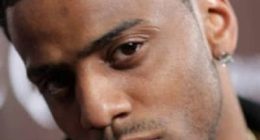[This story contains spoilers from The Idol finale.]
After five episodes, Sam Levinson’s latest drama The Idol has come to an end. But the controversy surrounding the hotly debated Max series created with Abel “The Weeknd” Tesfaye and Reza Fahim continues. After four episodes of building a narrative that appeared to be about a young pop artist falling victim to the abuse of a cult leader and producer, Sunday night’s season finale exposed Jocelyn (Lily-Rose Depp) as the orchestrator of the very circumstances she was thought to be a victim of following her entrance into Tedros’ (Tesfaye) crude world of music and masochism.
The unexpected shift has caused many viewers to double down on early critiques that the series was “torture porn.” But Da’Vine Joy Randolph, who plays Jocelyn’s manager Destiny on The Idol, says the season one ending isn’t misogynistic, as some have argued. In fact, it’s quite the opposite.
“It’s not just, what do you think of this man doing this thing to this woman? It’s taking back the power for women in the sense of, that girl knew what she was doing,” Randolph tells The Hollywood Reporter in the chat below. “I think it’s clever and I think it gives a great setup for what could be moving forward.”
While there’s yet to be an official word about a possible season two, Randolph believes season one’s closing satisfies concerns regarding the necessity of the graphic sex scenes that characterized each episode, particularly as it relates to who was manipulating who. “I think it turns it on its side and, hopefully, did what it needs to do in terms of shocking people, which I hope then made all the other stuff worth it,” she says. “When it’s questions of this being inappropriate or he’s quote-unquote ‘raping’ her, this kind of answers all those things.”
You were handpicked by Sam Levinson to play Destiny. What ultimately made you say yes to the role?
I had so much fun doing High Fidelity and even Dolemite, and I’m realizing I like comedy and drama; that’s a fun space where I can be free within these wide boundaries. I love this idea of trying a new form and working with a new director. From Euphoria, I knew this was going to be a very unique process. So, I was really excited about what that would entail. I give Sam respect. He did his research. He said when he watched High Fidelity and saw the spontaneity of that, he thought that could work in this world. Also, Abel said that he wanted this to serve as a parody or a cautionary tale, especially in the social media era and everybody becoming Insta-famous. And I’m always like, the project could be as crazy as ever, but there’s got to be a message; there’s got to be a point. I was very intrigued and moved by them being passionate people. I only want to work with people who really care. I knew Sam would be very passionate, but it was really cool to see Abel be so successful in one realm then decide, I really want to dip my foot in this. He really is dedicated. We filmed at his house. This man is so generous with his time. So that was very attractive to me.
The other thing that was crazy — and I took it as a sign from God that I’m supposed to be doing this — I was invited to an event in Aruba for a weekend and I got on the flight and Mary J. Blige’s manager, Ashauna Ayers, was on the flight. We were having a casual chit chat and I was like: Wait a minute. She’s Black, she’s a female, she’s curvy, and she’s doing what my role is, I’m going to ask her some questions. I don’t always do that, but it was a no-brainer. She gave me really cool insight into the job and all that it entails, and that was my greatest resource and my process of getting into the character. And then, probably because I come from theater, fashion and — because she’s a Black woman — what that woman’s hair looks like is always a huge part of my entry. In theater, you have dress rehearsals and you’re in the shoes of the character, so I’m always thinking about those things. And because she’s a Black woman and a curvy woman, she has to win. It’s not that I have to always play these high-glam characters; I played an inmate on Empire. But it’s that whatever she does, she has to be good at. I understand that it’s a privilege to be able to do this and all the things that I represent when someone physically sees me.
I recognized some of the wardrobe from Eloquii and wondered how much input you had, not only on fashion but also the dialogue. There are some lines that are very culturally African American, like the conversation when Chaim (Hank Azaria) asks if Tedros is Italian because his full name is Maurcio Jackson and you say, “Nah, he’s got ghetto ass parents that thought that was suave.” How much liberty did you have in shaping Destiny?
Never before had I had that much faith, support and trust. They were like, “You know what you’re doing, do it.” And that was really cool and wonderful for me to have that experience, because it was also a confidence booster for me to realize, you do know what you’re doing. Trust it. It was very collaborative from top to bottom in every department. Lately I’ve been collaborating a lot with the costume designers. I don’t get mad about it anymore. I used to be quiet and let them do what they were going to do, and sit there sad and disappointed. Now I’m proactive and say, “Let’s work together and figure this out.” I would say it was about 50-50 or 60-40 of my literal clothes. But I had to tell her go to ASOS, go to Eloquii because they have a quick turnaround. Everything I get I have to get tailored, but these are the brands that work for me. If I’m wearing this type of shoe, I need you to go a size up. If I’m wearing this, then I need that. I’ve realized you might have to teach them and that’s okay, as long as when you teach them they take heed and then they’ve learned it and I’m not doing your job for you time and time again.
Thomas Ogden, who I had customize some pieces for me before, did the all-Gucci number because my thing about Destiny was that I felt she was a woman who showed up, in every sense of the word. She’s already in a predominantly white space, at least in regard to the pop genre, so she already knows she stands out. So, if she’s going to stand out, at least she’s going to look good while doing it. I felt that was a bit of her armor, her uniform. She liked showing up where people question, is she the artist? I think Destiny really was into that and in that sense, it gave her the confidence she needed to do the job and to deal with these people. I also think it’s a statement that just upon looking at her, you know this lady’s not to be played with. She can be in the background, but you’re not going to put her in the background. That kind of stuff really helps me get into character so then when improv comes in, it doesn’t throw me because I’m locked in. It’s almost in a weird way, my version of method acting. I create an environment on my person to get into the given circumstances because if I look in the mirror at that character, I’ve got to be able to see her.

Audiences developed very strong opinions about this series even before the first episode aired. Were you surprised at all by the level of criticism? Do you think people gave the series a fair shot?
I truly respect and understand everyone’s opinion. Meaning, at the end of the day, it’s art. If we went to a museum, I know everybody won’t like the same painting. But as an artist, as long as there’s conversation being had, in my opinion, you’ve won the race. Not everyone’s going to like everything and that’s not for me to control. All I do is my very best. It was a very high-profile project. You have The Weeknd in it. That’s already going to start conversation. At the end of the day, what I’m grateful for is the viewership. You could be mad and have all the feelings, but you watched it. And I thank you for watching it. It’s okay if you didn’t like this, that and the third. Secondly, Sam coming off Euphoria, he’s just a very interesting, dare I say in quotes, “controversial” rebel-rouser director. But what I respect about that man so much is he is not afraid to go there, whatever that means. Whether you’re dealing with talking about teenagers and the real stuff that happens, or whether you’re talking about the industry and and different dynamics. It’s not going to make everybody comfortable. And yet I still think that does not define its success. I think it’s okay if you’re uncomfortable.
Also, I’m very grateful for the outpour of support and love that they gave my character, and at the same time, I’m empathetic and compassionate toward those who didn’t like it and voiced their opinion. For my personal boundaries, I don’t look at critiques. People will come up to me and say, “I don’t know about that show, but you’re great.” So, I know enough to know that there’s stuff going on. But I don’t sit there and read critics and reviews. I wouldn’t be able to keep doing this for years and years, because everyone has an opinion. So yes, it’s provocateur, it’s controversial, but we all knew that. My biggest thing is no one was disrespected, no one was harmed or made to feel uncomfortable. We’re talking about sex, drugs and rock ‘n’ roll literally.
What did you make of the finale? I, like a number of viewers, was a bit thrown by the shift because we seemed to be exploring the abuse women experience in the industry and then suddenly Jocelyn is positioned as the predator.
I loved it because I love the idea that they flipped it. When I was doing interviews prior, everybody was up in arms and I kept saying, “Do you really think that someone as intelligent and brilliant as Sam, who accomplished Euphoria, would literally be that on the surface?” Why I liked it, I should explain, is number one, it’s showing something new. When have we seen the woman do it? In a weird way, it’s feminine empowerment. We’ve never seen that side of this. What is it like when the talent has this huge team and all these people who are working for them and everything’s going along and then you lose a bit of yourself? I think there is a cost for that level of success and fame, and there’s a part of you that does, I think, give yourself over. I think the key is and what I strive for and am fighting for, I don’t care how big I get, how can I remain humble? How can I remain grounded? How can I remain true to myself without having to sign that over, right?
So now it’s not just, what do you think of this man doing this thing to this woman? It’s taking back the power for women in the sense of, that girl knew what she was doing. I think it’s clever and I think it gives it a great setup for what could be moving forward. I think it turns it on its side and, hopefully, did what it needs to do in terms of shocking people which I hope then made all the other stuff worth it. When it’s questions of this being inappropriate or he’s quote unquote “raping” her, this kind of answers all those things.
Some of the response to the plot twist has been that the series is nothing more than “torture porn.”
Let’s be real, if that’s what you’re into, that’s what you’re into. If you look at the first episode, she never once ever said “stop.” How I read it, or a version of what it could be, is that’s how she gets down. That’s her kink and she met the right guy that was like, all right. He thinks he’s in control of it and bringing her on to something new, but if you watch the first episode, she doesn’t flinch once. That’s where I saw this was clever writing.
We’re not inventing something new. We all saw Cabin by the Lake. That was freaky and weird. We’ve seen Eyes Wide Shut. There’s stuff out there. We didn’t reinvent the wheel, this is just the era of people voicing their feelings and that’s cool because at the end of the day, you want your stuff to be talked about. Good, better or indifferent, that you can’t control. But you want it to be talked about. I’m happy with people’s interaction because that lets me know that the work was impactful. There was nobody out there that was like, “Well, I’m indifferent.” Everybody has something strong to say, and that I love. That I’ve never been a part of, and I think that’s part of the magic of Sam.

What’s your take on Destiny’s role in the end? I loved that she never became the strong Black woman trope who has to save the young white damsel, but it did appear as though she had a level of care and a moral code above the rest. Yet, in the end, when the other artists Tedros found get signed to the label, it seems she might be like everybody else, in that so long as she gets her money, she’s okay with the questionable means.
I haven’t seen episode five yet, so I don’t know how they cut it together. But how I looked at it was that Tedros is very complicated because what’s crazy is that in his unorthodox method, if we really look at it, he does get better product. He knows these different methods and what to do and it’s working. What could be interesting for season two is Destiny’s dilemma because she has a deep, deep love of music. We created a backstory that Destiny probably did this herself as a performer when she was younger and for whatever reason, she got out of it. So, I think what could be her cross to bear is she does love this.
I wouldn’t be surprised if moving forward, it’s almost as if she can take the artists from Tedros and manage them herself. I think she has a deep love, addiction, obsession, passion, whatever it is, and I do think you have to be a little crazy to be in all of this. I don’t think it’s a lack of caring, absolutely not. I think she’s a huge champion, especially for the women. I think that’s what you see in her scene with Chloe when she’s like, “It’s crazy out here and you’ve got a good heart, so you hold on to that and don’t let anybody take that away.” She really means that and that’s also her MO with Jocelyn. At the same time, it’s still a business. But unlike the other people, she truly has a personal one-on-one investment, artist to artist, with these people.
I was still very surprised she didn’t stop Tedros when he was touching Jocelyn in front of everyone and making her orgasm on the album recording.
I kind of looked at it as this: first of all, this girl is grieving. Her mother has only been dead for a couple of months. On top of that, she just transitioned from being a child performer. That’s hard and that’s the most crucial time of your career. You’re either going to make it or you’re not. Thirdly, because they have so much privilege and are surrounded by yes men, it’s almost like you’re dealing with a prepubescent teenager. I say that to say, if your homegirl is dating a guy and, in your mind, this dude is trash, there’s nothing you can do and maybe, if and when she talks to you, you can be like, “Well…,” but you have to keep it neutral because if you say it, she might even stay there longer. So, what I entertained was this idea of this kind of tightrope situation because if I get too much like, “Look, we’re not doing this, this, this, and this,” she would go all the way left.
That’s why Destiny was at the house for episode four. It’s like when parents throw parties for their kids. You can have a party, but it’s going to be at our house and the absolute moment that I need to step in, so be it. Destiny is so many different people to Jocelyn at so many different times — a mother when she needs her to be, a big sister, a best friend, the cool aunt — and she puts on a different hat when she needs to, to make sure that this stuff is going to run.
Have you heard any confirmation about a second season?
Unless you hear something different, upon wrapping, even before, when you’re shooting the last two episodes, it’s always like, “So what do you think? What do we foresee?” And there’s chatter around that. I know this was never scheduled to be a limited series.
Was season one always five episodes?
I think after they revised things and we started shooting, that was up in the air. We shot a lot of content, but that stuff can change in any scenario. As far as a second season, I think it’s definitely a possibility. There’s nothing hard set yet, but I think from HBO’s perspective, that is definitely their desire.
In a final analysis, do you see Tedros as a victim? Is Jocelyn a victim?
In regard to toxic and mental health, I think they’re a victim to themselves. They’re a hazard to themselves. It’s two toxic people coming together, which is a force for good and for bad, and that’s what I found interesting to watch. There are moments where they gel and great music and work comes out of that. And there are moments where they don’t and it’s diabolical and I think that’s a very real thing. I think what’s interesting is to show the duplicity and polarities of both in male and feminine form. To ultimately say, no one’s exempt from anything and anyone’s liable to do anything If their needs aren’t met, if they haven’t achieved enough in life, if they feel like they haven’t been loved enough. Love makes people do crazy stuff. She could be in love with her career, which I think she is. I think her man is her career and because of that, through the manipulation, she’ll do anything for that “man.”
Tedros, he’s not even a has-been, he’s a want-to-be. He lacks validation and confidence and love. That’s why, when they first meet, Destiny already knows what time it is. He couldn’t even answer my question straight about where he went to school. So, for Destiny, and what I said for myself was: Tedros can be a threat in the right circumstances, but in regard to being diabolical? No. And that’s why in the conventional sense, no, Jocelyn’s not a victim. But she dealt with abuse from her mother who was a momager and that’s serious. That causes a lot of damage to one’s self-esteem and creates this need for acceptance and approval. At the end of the day, what’s ironic is they’re both searching for love. They’re searching for love in all the wrong places and going about it all the wrong ways and what’s funny is they have no trust and because of it the only way they think they can get what they think they need to get is through manipulation. It’s unfortunate, but that, to me, makes for an interesting possible season two for those things to be addressed and worked out.
Interview edited for length and clarity.
The Idol is now streaming on Max.
Source: Hollywood









